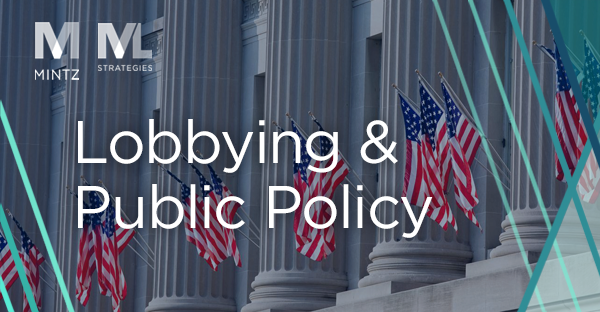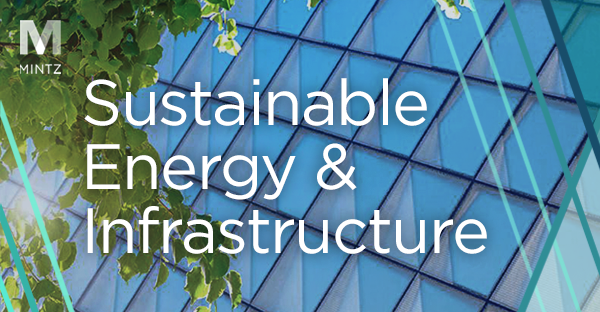ML Strategies Energy & Sustainability Washington Updates - March 2022
House of Representatives Approves America COMPETES Act
The House of Representatives approved the America Creating Opportunities for Manufacturing Pre-Eminence in Technology and Economic Strength (America COMPETES) Act of 2022 by a vote of 222–210. The bill aims to strengthen the competitiveness of the U.S. economy and U.S. businesses and to counter anti-competitive actions taken by the People’s Republic of China (PRC). The Senate passed competing legislation — the U.S. Innovation and Competition Act (USICA) — last year, and the two bills will now be reconciled to address differences in the language before moving to votes in each chamber for final passage.
The energy title of the America COMPETES Act includes:
- $375 million to reduce the vulnerability of the electric grid. The bill directs the Secretary of Energy to reduce the vulnerability of the electric grid to physical attack, cyber-attack, electromagnetic pulse, geomagnetic disturbances, severe weather, climate change, and seismic events, by creating a strategic transformer reserve and by facilitating domestic manufacturing and testing and monitoring of critical electric grid equipment. This bill authorizes $75 million each year from FY 2022 through FY 2026.
- $3 billion to fund the establishment of a domestic solar manufacturing supply chain. The bill directs the Secretary of Energy to establish a program to award grants and direct loans to eligible entities to carry out projects in the United States for the construction of new solar component manufacturing facilities, and retooling, retrofitting, or expansion of existing facilities, to make the United States less reliant on solar components made in China. The bill authorizes $600 million each year from FY 2022 through FY 2026.
A full section-by-section summary can be found HERE.
DOE Science for the Future Act
Senate Energy & Natural Resources Committee Chairman Joe Manchin (D-WV) and Ranking Member John Barrasso (R-WY) were joined by Sens. Durbin (D-IL) and Blackburn (R-TN) in introducing the Department of Energy Science for the Future Act of 2022. The bill would provide for the first-ever comprehensive authorization for the Energy Department’s Office of Science of more than $50 billion over five years. The Office of Science accounts for more than half of DOE’s non-defense research and development budget and is the nation’s largest supporter of research in the physical sciences. The legislation supports basic energy sciences, biological and environmental research, advanced scientific computing research, fusion energy research, nuclear physics, accelerator research and development, isotope development and production, the science laboratories infrastructure program, increased collaboration with teachers and scientists, and research security. It establishes a new program for midscale instrumentation and research equipment, an emerging biological threat preparedness research initiative, and new programs focused on high-intensity laser research and helium conservation.
The House of Representatives approved companion legislation (H.R. 3593) in June 2021 by a bipartisan vote of 351–98. A summary of the Senate bill can be found by clicking HERE.
Biden Administration Announces Electric Vehicle Charging Funding
In support of the build-out of a national electric vehicle charging network, the U.S. Departments of Transportation and Energy have announced funding that will be made available under the new National Electric Vehicle Infrastructure (NEVI) Formula Program established by the Bipartisan Infrastructure Law. The program will provide nearly $5 billion over five years to help states create a network of EV-charging stations along designated Alternative Fuel Corridors, particularly along the Interstate Highway System. To access these new Bipartisan Infrastructure Law funds, each state is required to submit an EV Infrastructure Deployment Plan to the new Joint Office of Energy and Transportation that describes how the state intends to use its share of NEVI Formula Program funds consistent with Federal Highway Administration (FHWA) guidance.
Click HERE to read more about this new funding opportunity for states.
The recently created Joint Office of Energy and Transportation also launched a new website that can be found HERE.
DOE Strategy for a Clean Energy Supply Chain
In response to President Biden’s Executive Order 14017 on America’s Supply Chains, the Department of Energy has released the first-ever comprehensive strategy to secure the nation’s clean energy supply chain. The DOE report, America’s Strategy to Secure the Supply Chain for a Robust Clean Energy Transition, examines strategies and cross-cutting topics and is part of a whole of government approach to chart a course for revitalizing the U.S. economy and domestic manufacturing by securing the country’s most critical supply chains. The report focuses on seven key areas: 1) increased availability of critical materials; 2) expanded domestic manufacturing capabilities; 3) investment and support for the formation of diverse, reliable, and socially responsible foreign supply chains; 4) increased adoption and deployment of clean energy; 5) improved end of life energy-related waste management; 6) attracting and supporting a skilled workforce for the clean energy transition; and 7) enhanced supply chain knowledge and decision-making.
Click HERE to download the full report and fact sheets.

ML Strategies Energy & Sustainability Washington Update — February 2022
January 31, 2022| Blog


